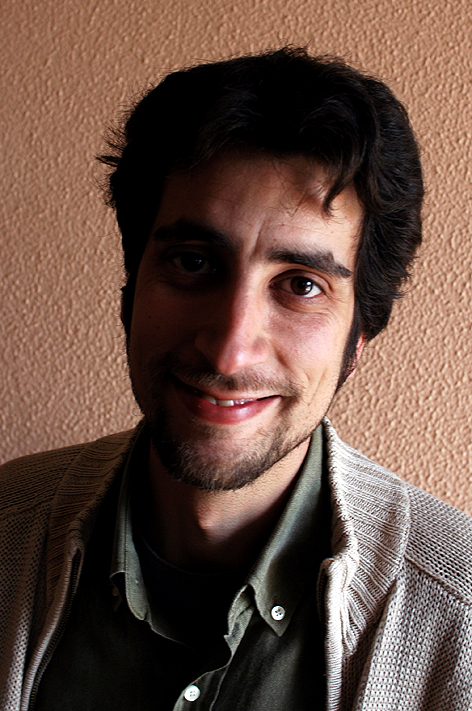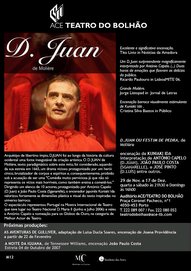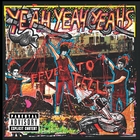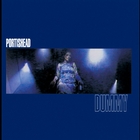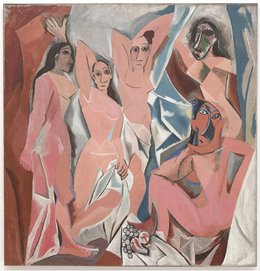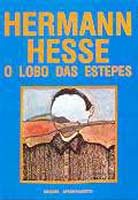Monday, November 27, 2006
Thursday, November 23, 2006
Livros da minha vida: "O Lobo das Estepes", Hermann Hesse
 Conheci Hermann Hesse num domingo de Novembro, em 1998. Estava em Lima, a passear por uma feira clandestina de literatura. Aos domingos em certas zonas da capital peruana, centenas de stands invadiam algumas das mais discretas avenidas da cidade, colocando à disposição dos amantes da literatura pouco endinheirados milhares de títulos fotocopiados. Os preços das obras dependiam da qualidade da falsificação. A iniciativa destas feiras era uma resposta do povo à censura comercial da presidência de Fujimori que taxava os livros com imposto de luxo de 40 por cento, com preços de algumas obras a atingirem os 40 ou 50 dólares, um ordenado portanto.
Conheci Hermann Hesse num domingo de Novembro, em 1998. Estava em Lima, a passear por uma feira clandestina de literatura. Aos domingos em certas zonas da capital peruana, centenas de stands invadiam algumas das mais discretas avenidas da cidade, colocando à disposição dos amantes da literatura pouco endinheirados milhares de títulos fotocopiados. Os preços das obras dependiam da qualidade da falsificação. A iniciativa destas feiras era uma resposta do povo à censura comercial da presidência de Fujimori que taxava os livros com imposto de luxo de 40 por cento, com preços de algumas obras a atingirem os 40 ou 50 dólares, um ordenado portanto.
Com 20 dólares no bolso era um milionário podia comprar 150 cópias de média qualidade. Na altura, acompanhava-me Jorge, um padre mexicano que adorava ler e trabalhava numa paróquia três vezes maior do que Lisboa. Nunca mais me esqueço, um dia em que chegou da Igreja a rir. Mostrou-me um buraco na camisa: "estava à espera do autocarro, ouvi uns tiros, senti uma picada, quando olhei para a camisa reparei que estava furada", disse-me. Eu completamente arrepiado e ele a sorrir. Fé. Actualmente quando me falam da Igreja Católica, normalmente divido em duas, a Romana e a Latino-americana. O que a primeira tem de poder político a segunda tem de fé. As eucaristias celebradas pelo Jorge em nada se parecem com as nossas aqui em Portugal. De regresso à literatura e à avenida, perdido num verdadeiro oceano de livros, antes de me afogar pedi ajuda ao Jorge que me apresentou "Siddhartha", de Hermann Hesse. Um padre católico a empurrar-me para um livro inspirado na vida de Buda. Enfim. Devorei o romance de Hesse em poucos dias. Livro iluminado, leve, mas profundo, capaz de elevar sentidos ocultos de palavras e personagens tão cativantes, quanto misteriosas, e penetrar nas profundezas das alma humana. Poderoso. Seguiu-se "O Lobo das Estepes". Da luz para a escuridão, saltar de "Siddharta" para "O Lobo das Estepes" é como estar na India a levitar ao som de Ravi Shankar para depois cair para a noite nova-iorquina do Velvet Underground. Que livro. Como me identifiquei com esse Lobo das Estepes... A solidão dos que pensam com profundidade, que procuram sentidos com paixão, com desespero. Introspecção, noite, solidão, presos entre o céu e a terra, só alguns homens atingem a lucidez delirante e solitária deste magnífico "Lobo". Apaixonei-me por Hesse ao deliciar-me com duas obras de uma amplitude e densidade tão diversas e profundas. Depois, li mais uma meia-dúzia de livros de Hesse, todos excelentes, mas "O Lobo das Estepes" é daquelas experiências que só se tem uma vez na vida... um livro que arranha o mais profundo a alma humana. Poucos escritores conseguem penetrar na beleza poderosa e significativa das coisas aparentemente simples como Hesse. O Mozart da literatura. Merecido Nobel. "O Lobo das Estepes" é, de facto, um dos livros da minha vida. Recomendo a quem ainda não teve o prazer de o ler, esperando que tenha tanto prazer em lê-lo quanto eu tive... boas leituras.
Posted by
Anastácio Neto
at
14:12
4
comments
![]()
Labels: Literatura
Sunday, September 10, 2006
Entrevista a Mário Cláudio:Parte II
Realmente, como disse, a matéria-prima do ficcionista é a alma e o comportamento humano. Tenho dificuldade em conceber universos literários que não tenham a ver com isso.
- Nesta triologia aborda o exílio relacionando-o com a problemática das minorias e do poder sobre elas exercido. Convoca personagens tão diferentes em idade, raça e mesmo época. Porquê?
É interessante a palavra que utiliza, pois caracteriza absolutamente aquiolo qe pretendo: exílio. O que quis foi precisamente fazer o retrato de pesssoas que estão à margem, que estão exiliadas em relação ao veio comum da existência.
No primeiro caso eram pessoas tão marginalizadas que estavam dentro de uma cadeia; no segundo, crianças marginalizadas do ponto de vista rácico e etário, neste caso são as pessoas que estão marginalizadas por atingirem uma certa idade. Algo que assistimos cada vez mais na nossa sociedade.
Tudo isto me leva a que se possa pensar nas relações de uma forma diferente. Essa marginalização resulta sempre de uma determinada concepção de poder. Que é o poder da maioria representada pelas pessoas adultas de uma raça que é a dominante. Em todo este processo há um potencial enorme de humanidade que é desperdiçado. Se pensarmos, por exemplo, no velho desta história, o melhor da sua obra foi produzido nos últimos anos da sua vida.
-Acredita que essa frase também se pode aplicar a si?
Gostaria que aquilo que produzo fosse sempre cada vez melhor. Mas, acredito que, de uma maneira geral, há uma tendência no mundo de hoje para uma hipervalorização do adolescente, sobretudo jovem adulto em desprimor de outras idades. Na sociedade em que vivemos, a partir dos 35 anos, as pessoas começam a ficar fora da vida. Desde logo, começam por ter grandes dificuldades em arranjar emprego. Depois assistimos a fenómenos de metamorfoses terríveis e em nada dignificantes de jovens que querem ser mais velhos e velhos que querem ser mais jovens. Assistimos a isso diariamente, desde operações plásticas, até ao culto da energia física que roça por vezes o caricato e que depois tem outras formas de exteriorização, como o vestuário, por exemplo.
- Não poderá existir um factor de medo, que, de certa forma, impede um encontro autêntico com o outr, provocando situações de exclusão e exílio?
Claro. A raíz dessse fenómeno é precisamente o medo. É o medo de ser destruído pelo outro que leva a meter as pessoas nas cadeiras. É o medo de ser submergido por uma cultura diferente, no caso do racismo, que conduz ao exílio. É o medo do que está para além da vida que aflige muito os jovens. A tendência é para se esconder tudo o que é motivado pelo medo. Esconde-se na cadeia, numa ilha num lar da terceira idade.
Posted by
Anastácio Neto
at
15:53
3
comments
![]()
Labels: Entrevista, Literatura
Friday, September 08, 2006
Entrevista a Mário Cláudio: Parte I
Com o romance “Gémeos”, editado pela D. Quixote”, Mário Cláudio encerra a triologia iniciada com “Ursamaior” sobre a problemática do exílio e a forma como as minorias são afastadas do teatro social, castrando a própria humanidade da sua essência plural e consequentemente criativa. Partindo do geral para o particular, uma entrevista sobre a forma, o pensamento e o conteúdo da escrita de um dos mais importantes romancistas da língua portuguesa.
- Os seus romances são reconhecidamente exigentes para com o leitor. Tendo um conhecimento tão profundo e amplo de múltiplos registos linguísticos, porque é que opta por uma escrita tendenciamente barroca.
O estilo de um autor não é uma questão de opção, mas sim de natureza. Escrevemos aquilo que somos e não como gostariamos de ser. Tendo-se uma estrutura de carácter excessiva, barroca, não se pode escrever de forma neo-clássica, por exemplo. A maneira como se escreve, o estilo que se adopta, é reflexo da maneira com somos construídos por dentro, isso não se pode alterar com facilidade.
- Suponho que possui uma certa pulsão para o perfeccionismo.
Sem dúvida. Não sou capaz de escrever seja o que for senão em termos de uma grande exigência comigo próprio. Quero assumir a responsabilidade por tudo o que escrevo. Gosto de responder por aquilo que faço de uma forma absoluta e isso leva-me a não poupar esforços para que aquilo que escrevo corresponda o mais exactamente possível àquilo que quero.
- A ignorância não serve de desculpa para o erro…
Acho que assim como se diz que a ignorância da lei não aproveita a ninguém, não entendo que um autor se possa acobertar de qualquer desculpa baseada na ignorância. O leitor tem o direito de exigir o máximo do autor e o autor tem o direito de produzir esse máximo sem se preocupar excessivamente com a opinião do leitor.
- É precisamente o seu caso, é, indubitavelmente, um dos romancistas portugueses mais exigentes para com os seus leitores…
…mas essa exigência começa por mim. Sou exigente comigo e depois, evidentemente, as pessoas que me lerem são livres de aceitar, não aceitar, de entender, de não entender. A função de escritor não é tornar-se legível. A função do escritor é tornar-se autêntico.
(continua)
Posted by
Anastácio Neto
at
21:24
0
comments
![]()
Labels: Entrevista, Literatura
Friday, June 24, 2005
Abertura d´ o vício da letra
Por motivos que estão devidamente explicados n´o vício da letra, decidi hoje inaugurar o referido espaço, inteiramente dedicado à literatura, onde ocasionalmente, dependendo da inspiração e da coragem, publicarei alguns poemas, contos, ensaíos e pensamentos meus e de autores nacionais e estrangeiros que admiro. Uma casa tendencialmente mais intimista e confessional. As portas estão abertas. Sejam bem-vindos.
Posted by
Anastácio Neto
at
20:55
0
comments
![]()
Labels: Internet, Literatura
Thursday, June 23, 2005
Wednesday, June 15, 2005
"Obscuro Domínio", Eugénio de Andrade
 Amar-te assim desvelado
Amar-te assim desvelado
entre barro fresco e ardor.
Sorver entre lábios fendidos
o ardor da luz orvalhada.
Deslizar pela vertente
da garganta, ser música
onde o silêncio aflui
e se concentra.
Irreprimível queimadura
ou vertigem desdobrada
beijo a beijo, 
brancura dilacerada.
Penetrar na doçura da areia
ou do lume,
na luz queimada
da pupila mais azul,
no oiro anoitecido
entre pétalas cerradas,
no alto e navegável
golfo do desejo,
onde o furor habita
crispado de agulhas,
onde faça sangrar
as tuas águas nuas.
Posted by
Anastácio Neto
at
02:23
0
comments
![]()
Labels: Literatura
Tuesday, June 14, 2005
Monday, June 13, 2005
Eugénio de Andrade
 Faleceu hoje de madrugada um dos maiores poetas de sempre da língua portuguesa: Eugénio de Andrade. Recordo-me ainda este ano, por altura do seu 82 aniversário, do encontro-celebração da vida do autor de "Escrita da Terra", na Fundação Eugénio de Andrade, na Foz, a 19 de Janeiro. De Manuel António Pina a Arnaldo Saraiva, de jovens talentos como Rui Lage, a casa/funcdação do poeta transformou-se num pequeno ninho para tão grande e sentida homenagem. Como no Porto, os escritores movem-se em "capelas", naturalmente alguns nomes que agora aparecem na televisão a elogiar o poeta não compareceram a festa de aniversário. Homem de esquerda, Eugénio produziu alguns do mais belos poemas que alguma vez tive a oportunidade de ler. A terra, o mar, o corpo e a figura da mãe são temas ou paisagens transversais numa obra notável que ao longo desta semana terei o cuidado, e espero o tempo, para revisitar aqui no blog. O país, visto como a língua portuguesa, fica a partir de hoje mais pobre. No entanto, importa ler e saborear a lírica de Eugénio.
Faleceu hoje de madrugada um dos maiores poetas de sempre da língua portuguesa: Eugénio de Andrade. Recordo-me ainda este ano, por altura do seu 82 aniversário, do encontro-celebração da vida do autor de "Escrita da Terra", na Fundação Eugénio de Andrade, na Foz, a 19 de Janeiro. De Manuel António Pina a Arnaldo Saraiva, de jovens talentos como Rui Lage, a casa/funcdação do poeta transformou-se num pequeno ninho para tão grande e sentida homenagem. Como no Porto, os escritores movem-se em "capelas", naturalmente alguns nomes que agora aparecem na televisão a elogiar o poeta não compareceram a festa de aniversário. Homem de esquerda, Eugénio produziu alguns do mais belos poemas que alguma vez tive a oportunidade de ler. A terra, o mar, o corpo e a figura da mãe são temas ou paisagens transversais numa obra notável que ao longo desta semana terei o cuidado, e espero o tempo, para revisitar aqui no blog. O país, visto como a língua portuguesa, fica a partir de hoje mais pobre. No entanto, importa ler e saborear a lírica de Eugénio.
Posted by
Anastácio Neto
at
16:07
1 comments
![]()
Labels: Literatura
Adeus - Eugénio de Andrade
Já gastámos as palavras pela rua, meu amor,
e o que nos ficou não chega
para afastar o frio de quatro paredes.
Gastámos tudo menos o silêncio.
Gastámos os olhos com o sal das lágrimas,
gastámos as mãos à força de as apertarmos,
gastámos o relógio e as pedras das esquinas
em esperas inúteis.
Meto as mãos nas algibeiras e não encontro nada.
Antigamente tínhamos tanto para dar um ao outro;
era como se todas as coisas fossem minhas:
quanto mais te dava mais tinha para te dar.
Às vezes tu dizias: os teus olhos são peixes verdes.
E eu acreditava.
Acreditava,
porque ao teu lado
todas as coisas eram possíveis.
Mas isso era no tempo dos segredos,
era no tempo em que o teu corpo era um aquário,
era no tempo em que os meus olhos
eram realmente peixes verdes.
Hoje são apenas os meus olhos.
É pouco mas é verdade,
uns olhos como todos os outros.
Já gastámos as palavras.
Quando agora digo: meu amor,
já não se passa absolutamente nada.
E no entanto, antes das palavras gastas,
tenho a certeza
de que todas as coisas estremeciam
só de murmurar o teu nome
no silêncio do meu coração.
Não temos já nada para dar.
Dentro de ti
não há nada que me peça água.
O passado é inútil como um trapo.
E já te disse: as palavras estão gastas.
Adeus.
Posted by
Anastácio Neto
at
16:04
1 comments
![]()
Labels: Literatura
Friday, June 10, 2005
Dia de Camões
 Transforma-se o amador na cousa amada,
Transforma-se o amador na cousa amada,
Por virtude do muito imaginar;
Não tenho logo mais que desejar,
Pois em mim tenho a parte desejada
Se nela está minha alma transformada,
Que mais deseja o corpo de alcançar?
Em si somente pode descansar,
Pois consigo tal alma está liada.
Mas esta linda e pura semideia,
Que, como um acidente em seu sujeito,
Assim coa alma minha se conforma,
Está no pensamento como ideia;
(e) o vivo e puro amor de que sou feito,
Como a matéria simples busca a forma.
"Sonetos de Camões", escolhidos por Eugénio de Andrade, Ed. Assírio & Alvim
Posted by
Anastácio Neto
at
20:11
0
comments
![]()
Labels: Literatura
Monday, June 06, 2005
O fenómeno José Gil
 D´ "As Causas da Decadência dos Povos Penínsulares", de Antero de Quental, a "Portugal, Hoje: o Medo de Existir", de José Gil, passando por "Portugal Como Destino seguido de Mitologia da Saudade", Eduardo Lourenço, o universo ensaístico nacional tem produzido múltipas reflexões sobre o Pensar e a Mentalidade portuguesa em áreas tão diversas como a religiosa, cultural e socio-política. Actualmente, com José Gil transformado em fenómeno mediático, com o seu mais recente ensaío, que vai já na 7ª edição em apenas seis meses, e a conhecer leitores em vários e insuspeitos estratos sócio-culturais, importa situar o fenómeno e contextualizar uma "hype" que, se por um lado, tem aspectos sinceramente positivos, sobretudo no que diz respeito à aproximação do pensamento filosófico e do ensaío crítico ao leitor de domingo à tarde, resulta, por outro lado, de factores menos felizes e que se podem caracterizar pela tendência para a autoflagelação, em tempos de crise económica e identitária. Alegro-me pela popularidade do autor e da obra em particular, mas coloco reticências em relação à quantidade de novos admiradores que terão a "bagagem" para consumir outras propostas ensaísticas de José Gil, bem mais complexas como "As Metamofoses do Corpo". Portugal ainda sobre de uma crise educacional crónica. Temo ainda que a esfera mediática que há muito consumiu a pública, aniquilando qualquer espaço sério de debate e reflexão crítica, remetendo a opinião para os sacerdotes do costume, Eduardo Prado Coelho, Marcelo Rebelo de Sousa e Miguel Sousa Tavares, entre outros, acabe, como mecanismo de autodefesa, por transformar Gil numa espécie figura contemplativa e iconográfica. A palavra vive do encontro surpreendente e arrebatador; da acção consequente e inovadora. Enquanto os filósofos pensam a realidade não pode continuar a passear-se distante do Homem.
D´ "As Causas da Decadência dos Povos Penínsulares", de Antero de Quental, a "Portugal, Hoje: o Medo de Existir", de José Gil, passando por "Portugal Como Destino seguido de Mitologia da Saudade", Eduardo Lourenço, o universo ensaístico nacional tem produzido múltipas reflexões sobre o Pensar e a Mentalidade portuguesa em áreas tão diversas como a religiosa, cultural e socio-política. Actualmente, com José Gil transformado em fenómeno mediático, com o seu mais recente ensaío, que vai já na 7ª edição em apenas seis meses, e a conhecer leitores em vários e insuspeitos estratos sócio-culturais, importa situar o fenómeno e contextualizar uma "hype" que, se por um lado, tem aspectos sinceramente positivos, sobretudo no que diz respeito à aproximação do pensamento filosófico e do ensaío crítico ao leitor de domingo à tarde, resulta, por outro lado, de factores menos felizes e que se podem caracterizar pela tendência para a autoflagelação, em tempos de crise económica e identitária. Alegro-me pela popularidade do autor e da obra em particular, mas coloco reticências em relação à quantidade de novos admiradores que terão a "bagagem" para consumir outras propostas ensaísticas de José Gil, bem mais complexas como "As Metamofoses do Corpo". Portugal ainda sobre de uma crise educacional crónica. Temo ainda que a esfera mediática que há muito consumiu a pública, aniquilando qualquer espaço sério de debate e reflexão crítica, remetendo a opinião para os sacerdotes do costume, Eduardo Prado Coelho, Marcelo Rebelo de Sousa e Miguel Sousa Tavares, entre outros, acabe, como mecanismo de autodefesa, por transformar Gil numa espécie figura contemplativa e iconográfica. A palavra vive do encontro surpreendente e arrebatador; da acção consequente e inovadora. Enquanto os filósofos pensam a realidade não pode continuar a passear-se distante do Homem.
Posted by
Anastácio Neto
at
04:29
0
comments
![]()
Labels: Literatura
Friday, June 03, 2005
"Fairy Land i", William Shakespeare
"Hill of Montmartre with Quarry", Van Gogh, 1886 

Over hill, over dale,
Thorough bush, thorough brier,
Over park, over pale,
Thorough flood, thorough fire,
I do wander everywhere,
Swifter than the moone's sphere;
And I serve the fairy queen,
To dew her orbs upon the green:
The cowslips tall her pensioners be;
In their gold coats spots you see;
Those be rubies, fairy favours,
In those freckles live their savours:
I must go seek some dew-drops here,
And hang a pearl in every cowslip's ear.
Posted by
Anastácio Neto
at
02:00
0
comments
![]()
Labels: Literatura
Tuesday, May 31, 2005
Walt Whitman: Leaves Of Grass. A Carol Of Harvest For 1867
"War or Discord on Horseback", 1894, Douanier Rousseau 

A SONG of the good green grass!
A song no more of the city streets;
A song of farms--a song of the soil of fields.
A song with the smell of sun-dried hay, where the nimble pitchers
handle the pitch-fork;
A song tasting of new wheat, and of fresh-husk'd maize.
For the lands, and for these passionate days, and for myself,
Now I awhile return to thee, O soil of Autumn fields,
Reclining on thy breast, giving myself to thee,
Answering the pulses of thy sane and equable heart,
Tuning a verse for thee. 10
O Earth, that hast no voice, confide to me a voice!
O harvest of my lands! O boundless summer growths!
O lavish, brown, parturient earth! O infinite, teeming womb!
A verse to seek, to see, to narrate thee.
Ever upon this stage,
Is acted God's calm, annual drama,
Gorgeous processions, songs of birds,
Sunrise, that fullest feeds and freshens most the soul,
The heaving sea, the waves upon the shore, the musical, strong waves,
The woods, the stalwart trees, the slender, tapering trees, 20
The flowers, the grass, the lilliput, countless armies of the grass,
The heat, the showers, the measureless pasturages,
The scenery of the snows, the winds' free orchestra,
The stretching, light-hung roof of clouds--the clear cerulean, and
the bulging, silvery fringes,
The high dilating stars, the placid, beckoning stars,
The moving flocks and herds, the plains and emerald meadows,
The shows of all the varied lands, and all the growths and products.
Fecund America! To-day,
Thou art all over set in births and joys!
Thou groan'st with riches! thy wealth clothes thee as with a swathing
garment! 30
Thou laughest loud with ache of great possessions!
A myriad-twining life, like interlacing vines, binds all thy vast
demesne!
As some huge ship, freighted to water's edge, thou ridest into port!
As rain falls from the heaven, and vapors rise from earth, so have
the precious values fallen upon thee, and risen out of thee!
Thou envy of the globe! thou miracle!
Thou, bathed, choked, swimming in plenty!
Thou lucky Mistress of the tranquil barns!
Thou Prairie Dame that sittest in the middle, and lookest out upon
thy world, and lookest East, and lookest West!
Dispensatress, that by a word givest a thousand miles--that giv'st a
million farms, and missest nothing!
Thou All-Acceptress--thou Hospitable--(thou only art hospitable, as
God is hospitable.) 40
When late I sang, sad was my voice;
Sad were the shows around me, with deafening noises of hatred, and
smoke of conflict;
In the midst of the armies, the Heroes, I stood,
Or pass'd with slow step through the wounded and dying.
But now I sing not War,
Nor the measur'd march of soldiers, nor the tents of camps,
Nor the regiments hastily coming up, deploying in line of battle.
No more the dead and wounded;
No more the sad, unnatural shows of War.
Ask'd room those flush'd immortal ranks? the first forth-stepping
armies? 50
Ask room, alas, the ghastly ranks--the armies dread that follow'd.
(Pass--pass, ye proud brigades!
So handsome, dress'd in blue--with your tramping, sinewy legs;
With your shoulders young and strong--with your knapsacks and your
muskets;
--How elate I stood and watch'd you, where, starting off, you
march'd!
Pass;--then rattle, drums, again!
Scream, you steamers on the river, out of whistles loud and shrill,
your salutes!
For an army heaves in sight--O another gathering army!
Swarming, trailing on the rear--O you dread, accruing army!
O you regiments so piteous, with your mortal diarrhoea! with your
fever! 60
O my land's maimed darlings! with the plenteous bloody bandage and
the crutch!
Lo! your pallid army follow'd!)
But on these days of brightness,
On the far-stretching beauteous landscape, the roads and lanes, the
high-piled farm-wagons, and the fruits and barns,
Shall the dead intrude?
Ah, the dead to me mar not--they fit well in Nature;
They fit very well in the landscape, under the trees and grass,
And along the edge of the sky, in the horizon's far margin.
Nor do I forget you, departed;
Nor in winter or summer, my lost ones; 70
But most, in the open air, as now, when my soul is rapt and at
peace--like pleasing phantoms,
Your dear memories, rising, glide silently by me.
I saw the day, the return of the Heroes;
(Yet the Heroes never surpass'd, shall never return;
Them, that day, I saw not.)
I saw the interminable Corps--I saw the processions of armies,
I saw them approaching, defiling by, with divisions,
Streaming northward, their work done, camping awhile in clusters of
mighty camps.
No holiday soldiers!--youthful, yet veterans;
Worn, swart, handsome, strong, of the stock of homestead and
workshop,
Harden'd of many a long campaign and sweaty march, 80
Inured on many a hard-fought, bloody field.
A pause--the armies wait;
A million flush'd, embattled conquerors wait;
The world, too, waits--then, soft as breaking night, and sure as
dawn,
They melt--they disappear.
Exult, indeed, O lands! victorious lands!
Not there your victory, on those red, shuddering fields;
But here and hence your victory.
Melt, melt away, ye armies! disperse, ye blue-clad soldiers!
Resolve ye back again--give up, for good, your deadly arms; 90
Other the arms, the fields henceforth for you, or South or North, or
East or West,
With saner wars--sweet wars--life-giving wars.
Loud, O my throat, and clear, O soul!
The season of thanks, and the voice of full-yielding;
The chant of joy and power for boundless fertility.
All till'd and untill'd fields expand before me;
I see the true arenas of my race--or first, or last,
Man's innocent and strong arenas.
I see the Heroes at other toils;
I see, well-wielded in their hands, the better weapons. 100
I see where America, Mother of All,
Well-pleased, with full-spanning eye, gazes forth, dwells long,
And counts the varied gathering of the products.
Busy the far, the sunlit panorama;
Prairie, orchard, and yellow grain of the North,
Cotton and rice of the South, and Louisianian cane;
Open, unseeded fallows, rich fields of clover and timothy,
Kine and horses feeding, and droves of sheep and swine,
And many a stately river flowing, and many a jocund brook,
And healthy uplands with their herby-perfumed breezes, 110
And the good green grass--that delicate miracle, the ever-recurring
grass.
Toil on, Heroes! harvest the products!
Not alone on those warlike fields, the Mother of All,
With dilated form and lambent eyes, watch'd you.
Toil on, Heroes! toil well! Handle the weapons well!
The Mother of All--yet here, as ever, she watches you.
Well-pleased, America, thou beholdest,
Over the fields of the West, those crawling monsters,
The human-divine inventions, the labor-saving implements:
Beholdest, moving in every direction, imbued as with life, the
revolving hay-rakes, 120
The steam-power reaping-machines, and the horse-power machines,
The engines, thrashers of grain, and cleaners of grain, well
separating the straw--the nimble work of the patent pitch-fork;
Beholdest the newer saw-mill, the southern cotton-gin, and the rice-
cleanser.
Beneath thy look, O Maternal,
With these, and else, and with their own strong hands, the Heroes
harvest.
All gather, and all harvest;
(Yet but for thee, O Powerful! not a scythe might swing, as now, in
security;
Not a maize-stalk dangle, as now, its silken tassels in peace.)
Under Thee only they harvest--even but a wisp of hay, under thy great
face, only;
Harvest the wheat of Ohio, Illinois, Wisconsin--every barbed spear,
under thee; 130
Harvest the maize of Missouri, Kentucky, Tennessee--each ear in its
light-green sheath,
Gather the hay to its myriad mows, in the odorous, tranquil barns,
Oats to their bins--the white potato, the buckwheat of Michigan, to
theirs;
Gather the cotton in Mississippi or Alabama--dig and hoard the
golden, the sweet potato of Georgia and the Carolinas,
Clip the wool of California or Pennsylvania,
Cut the flax in the Middle States, or hemp, or tobacco in the
Borders,
Pick the pea and the bean, or pull apples from the trees, or bunches
of grapes from the vines,
Or aught that ripens in all These States, or North or South,
Under the beaming sun, and under Thee.
Posted by
Anastácio Neto
at
00:00
0
comments
![]()
Labels: Literatura
Thursday, May 26, 2005
"Pessoas Como Nós", Margarida Rebelo Pinto


"Os homens nem sempre avançam, nem sempre atacam. Alguns preferem esperar, deixar que o tempo lhes traga o que mais precisam, para nunca terem de tomar decisões. O Fred é assim, como um lobo, e os lobos preferem morrer de fome a cometer um erro. Ele nunca dará um passo em frente."
Posted by
Anastácio Neto
at
01:36
3
comments
![]()
Labels: Literatura
Wednesday, May 25, 2005
Como tornar-se num escritor de sucesso sem ter lido um livro em toda a sua vida - parte 1
Inspirado na abertura das feiras no livro de Lisboa e Porto.
Escolha com precisão cirúrgica um público alvo. Esqueça-se de si. Coloque-se sempre sempre leitor em primeiro lugar. Exemplo: se decidir tornar-se num escritor urbano-realista, com olhos colocados no público feminino, siga o magnífico e bem sucedido exemplo de Margarida Rebelo Pinto e coloque imediatamente de lado palavras com mais de quatro ou cinco sílabas. Simplifique. Se lhe faltar inspiração, corra para a cabeleireira mais perto de si e permaneça atento às conversas da clientela ou siga para uma loja de decoração de interiores e preste atenção aos dramas familiares da classe média com aspirações a alta. Não tenha medo nem pudor, leve um bloco de notas consigo. Não confie na sua memória. Defina os personagens de forma o mais estereotipada possível. Figuras planas, com o mínimo de densidade psicológica possível. Exemplo: Mulher atraente, loira de 38 anos, licenciada em recursos humanos, vive com engelheiro informático que trabalha para uma empresa de telecomunicações. Subitamente, encontra no ginásio um chefe do departamento de marketing de uma multinacional de produtos de beleza que teima em convidá-la para uma sessão fotográfica para o próximo catálogo Primavera/Verão, pois não acredita que nossa heroína não seja ou tenha sido uma modelo. Entre dentro da mente desta fantástica mal aproveitada mulher. Defenda com unhas e dentes o seu dilema, se necessário for coloque suspeitas sobre o marido que poderá muito bem ter uma ou duas amantes. Crie mistério. Nunca que esqueça de descrever com pormenor corpos, rostos e cheiros dos personagens.
Posted by
Anastácio Neto
at
20:37
2
comments
![]()
Labels: Literatura
Wednesday, May 18, 2005
A Cradle Song - William Blake
foto by Lisa Nola 

Sweet dreams form a shade,
O'er my lovely infants head.
Sweet dreams of pleasant streams,
By happy silent moony beams
Sweet sleep with soft down.
Weave thy brows an infant crown.
Sweet sleep Angel mild,
Hover o'er my happy child.
Sweet smiles in the night,
Hover over my delight.
Sweet smiles Mothers smiles,
All the livelong night beguiles.
Sweet moans, dovelike sighs,
Chase not slumber from thy eyes,
Sweet moans, sweeter smiles,
All the dovelike moans beguiles.
Sleep sleep happy child,
All creation slept and smil'd.
Sleep sleep, happy sleep.
While o'er thee thy mother weep
Sweet babe in thy face,
Holy image I can trace.
Sweet babe once like thee.
Thy maker lay and wept for me
Wept for me for thee for all,
When he was an infant small.
Thou his image ever see.
Heavenly face that smiles on thee,
Smiles on thee on me on all,
Who became an infant small,
Infant smiles are His own smiles,
Heaven & earth to peace beguiles.
Posted by
Anastácio Neto
at
03:51
0
comments
![]()
Labels: Literatura
Monday, May 16, 2005
A Better Resurrection - Sylvia Plath


I have no wit, I have no words, no tears;
My heart within me like a stone
Is numbed too much for hopes or fears;
Look right, look left, I dwell alone;
A lift mine eyes, but dimmed with grief
No everlasting hills I see;
My life is like the falling leaf;
O Jesus, quicken me.
Posted by
Anastácio Neto
at
01:14
1 comments
![]()
Labels: Literatura
Tuesday, May 10, 2005
Allen Ginsberg - Howl


I saw the best minds of my generation destroyed by madness, starving hysterical naked,
dragging themselves through the negro streets at dawn looking for an angry fix,
angelheaded hipsters burning for the ancient heavenly connection to the starry dynamo in the machinery of night,
who poverty and tatters and hollow-eyed and high sat up smoking in the supernatural darkness of cold-water flats
floating across the tops of cities contemplating jazz,
who bared their brains to Heaven under the El and saw Mohammedan angels staggering on tenement roofs
illuminated,
who passed through universities with radiant cool eyes hallucinating Arkansas and Blake-light tragedy among the
scholars of war,
who were expelled from the academies for crazy & publishing obscene odes on the windows of the skull,
who cowered in unshaven rooms in underwear, burning their money in wastebaskets and listening to the Terror
through the wall,
who got busted in their pubic beards returning through Laredo with a belt of marijuana for New York,
who ate fire in paint hotels or drank turpentine in Paradise Alley, death, or purgatoried their torsos night after night
with dreams, with drugs, with waking nightmares, alcohol and cock and endless balls,
incomparable blind; streets of shuddering cloud and lightning in the mind leaping toward poles of Canada &
Paterson, illuminating all the motionless world of Time between,
Peyote solidities of halls, backyard green tree cemetery dawns, wine drunkenness over the rooftops, storefront
boroughs of teahead joyride neon blinking traffic light, sun and moon and tree vibrations in the roaring winter dusks
of Brooklyn, ashcan rantings and kind king light of mind,
who chained themselves to subways for the endless ride from Battery to holy Bronx on benzedrine until the noise of
wheels and children brought them down shuddering mouth-wracked and battered bleak of brain all drained of
brilliance in the drear light of Zoo,
who sank all night in submarine light of Bickford's floated out and sat through the stale beer after noon in desolate
Fugazzi's, listening to the crack of doom on the hydrogen jukebox,
who talked continuously seventy hours from park to pad to bar to Bellevue to museum to the Brooklyn Bridge,
lost battalion of platonic conversationalists jumping down the stoops off fire escapes off windowsills off Empire State
out of the moon,
yacketayakking screaming vomiting whispering facts and memories and anecdotes and eyeball kicks and shocks of
hospitals and jails and wars,
whole intellects disgorged in total recall for seven days and nights with brilliant eyes, meat for the Synagogue cast on
the pavement,
who vanished into nowhere Zen New Jersey leaving a trail of ambiguous picture postcards of Atlantic City Hall,
suffering Eastern sweats and Tangerian bone-grind- ings and migraines of China under junk-with- drawal in
Newark's bleak furnished room,
who wandered around and around at midnight in the railroad yard wondering where to go, and went, leaving no
broken hearts,
who lit cigarettes in boxcars boxcars boxcars racketing through snow toward lonesome farms in grand- father night,
who studied Plotinus Poe St. John of the Cross telep- athy and bop kabbalah because the cosmos in- stinctively
vibrated at their feet in Kansas,
who loned it through the streets of Idaho seeking vis- ionary indian angels who were visionary indian angels,
who thought they were only mad when Baltimore gleamed in supernatural ecstasy,
who jumped in limousines with the Chinaman of Okla- homa on the impulse of winter midnight street light smalltown
rain,
who lounged hungry and lonesome through Houston seeking jazz or sex or soup, and followed the brilliant Spaniard
to converse about America and Eternity, a hopeless task, and so took ship to Africa,
who disappeared into the volcanoes of Mexico leaving behind nothing but the shadow of dungarees and the lava and
ash of poetry scattered in fire place Chicago,
who reappeared on the West Coast investigating the F.B.I. in beards and shorts with big pacifist eyes sexy in their
dark skin passing out incom- prehensible leaflets,
who burned cigarette holes in their arms protesting the narcotic tobacco haze of Capitalism,
who distributed Supercommunist pamphlets in Union Square weeping and undressing while the sirens of Los Alamos
wailed them down, and wailed down Wall, and the Staten Island ferry also wailed,
who broke down crying in white gymnasiums naked and trembling before the machinery of other skeletons,
who bit detectives in the neck and shrieked with delight in policecars for committing no crime but their own wild
cooking pederasty and intoxication,
who howled on their knees in the subway and were dragged off the roof waving genitals and manu- scripts,
who let themselves be fucked in the ass by saintly motorcyclists, and screamed with joy,
who blew and were blown by those human seraphim, the sailors, caresses of Atlantic and Caribbean love,
who balled in the morning in the evenings in rose gardens and the grass of public parks and cemeteries scattering
their semen freely to whomever come who may,
who hiccuped endlessly trying to giggle but wound up with a sob behind a partition in a Turkish Bath when the blond
& naked angel came to pierce them with a sword,
who lost their loveboys to the three old shrews of fate the one eyed shrew of the heterosexual dollar the one eyed
shrew that winks out of the womb and the one eyed shrew that does nothing but sit on her ass and snip the intellectual
golden threads of the craftsman's loom,
who copulated ecstatic and insatiate with a bottle of beer a sweetheart a package of cigarettes a can- dle and fell off
the bed, and continued along the floor and down the hall and ended fainting on the wall with a vision of ultimate cunt
and come eluding the last gyzym of consciousness,
who sweetened the snatches of a million girls trembling in the sunset, and were red eyed in the morning but prepared
to sweeten the snatch of the sun rise, flashing buttocks under barns and naked in the lake,
who went out whoring through Colorado in myriad stolen night-cars, N.C., secret hero of these poems, cocksman and
Adonis of Denver-joy to the memory of his innumerable lays of girls in empty lots & diner backyards, moviehouses'
rickety rows, on mountaintops in caves or with gaunt waitresses in familiar roadside lonely pet- ticoat upliftings &
especially secret gas-station solipsisms of johns, & hometown alleys too,
who faded out in vast sordid movies, were shifted in dreams, woke on a sudden Manhattan, and picked themselves up
out of basements hung over with heartless Tokay and horrors of Third Avenue iron dreams & stumbled to unemploy-
ment offices,
who walked all night with their shoes full of blood on the snowbank docks waiting for a door in the East River to open
to a room full of steamheat and opium,
who created great suicidal dramas on the apartment cliff-banks of the Hudson under the wartime blue floodlight of
the moon & their heads shall be crowned with laurel in oblivion,
who ate the lamb stew of the imagination or digested the crab at the muddy bottom of the rivers of Bowery,
who wept at the romance of the streets with their pushcarts full of onions and bad music,
who sat in boxes breathing in the darkness under the bridge, and rose up to build harpsichords in their lofts,
who coughed on the sixth floor of Harlem crowned with flame under the tubercular sky surrounded by orange crates
of theology,
who scribbled all night rocking and rolling over lofty incantations which in the yellow morning were stanzas of
gibberish,
who cooked rotten animals lung heart feet tail borsht & tortillas dreaming of the pure vegetable kingdom,
who plunged themselves under meat trucks looking for an egg,
who threw their watches off the roof to cast their ballot for Eternity outside of Time, & alarm clocks fell on their
heads every day for the next decade,
who cut their wrists three times successively unsuccess- fully, gave up and were forced to open antique stores where
they thought they were growing old and cried,
who were burned alive in their innocent flannel suits on Madison Avenue amid blasts of leaden verse & the tanked-up
clatter of the iron regiments of fashion & the nitroglycerine shrieks of the fairies of advertising & the mustard gas of
sinis- ter intelligent editors, or were run down by the drunken taxicabs of Absolute Reality,
who jumped off the Brooklyn Bridge this actually hap- pened and walked away unknown and forgotten into the
ghostly daze of Chinatown soup alley ways & firetrucks, not even one free beer,
who sang out of their windows in despair, fell out of the subway window, jumped in the filthy Pas- saic, leaped on
negroes, cried all over the street, danced on broken wineglasses barefoot smashed phonograph records of nostalgic
European 1930s German jazz finished the whiskey and threw up groaning into the bloody toilet, moans in their ears
and the blast of colossal steam whistles,
who barreled down the highways of the past journeying to each other's hotrod-Golgotha jail-solitude watch or
Birmingham jazz incarnation,
who drove crosscountry seventytwo hours to find out if I had a vision or you had a vision or he had a vision to find
out Eternity,
who journeyed to Denver, who died in Denver, who came back to Denver & waited in vain, who watched over Denver
& brooded & loned in Denver and finally went away to find out the Time, & now Denver is lonesome for her heroes,
who fell on their knees in hopeless cathedrals praying for each other's salvation and light and breasts, until the soul
illuminated its hair for a second,
who crashed through their minds in jail waiting for impossible criminals with golden heads and the charm of reality in
their hearts who sang sweet blues to Alcatraz,
who retired to Mexico to cultivate a habit, or Rocky Mount to tender Buddha or Tangiers to boys or Southern Pacific
to the black locomotive or Harvard to Narcissus to Woodlawn to the daisychain or grave,
who demanded sanity trials accusing the radio of hyp notism & were left with their insanity & their hands & a hung
jury,
who threw potato salad at CCNY lecturers on Dadaism and subsequently presented themselves on the granite steps of
the madhouse with shaven heads and harlequin speech of suicide, demanding in- stantaneous lobotomy,
and who were given instead the concrete void of insulin Metrazol electricity hydrotherapy psycho- therapy
occupational therapy pingpong & amnesia,
who in humorless protest overturned only one symbolic pingpong table, resting briefly in catatonia,
returning years later truly bald except for a wig of blood, and tears and fingers, to the visible mad man doom of the
wards of the madtowns of the East,
Pilgrim State's Rockland's and Greystone's foetid halls, bickering with the echoes of the soul, rock- ing and rolling in
the midnight solitude-bench dolmen-realms of love, dream of life a night- mare, bodies turned to stone as heavy as the
moon,
with mother finally ******, and the last fantastic book flung out of the tenement window, and the last door closed at
4. A.M. and the last telephone slammed at the wall in reply and the last fur- nished room emptied down to the last
piece of mental furniture, a yellow paper rose twisted on a wire hanger in the closet, and even that imaginary, nothing
but a hopeful little bit of hallucination
ah, Carl, while you are not safe I am not safe, and now you're really in the total animal soup of time
and who therefore ran through the icy streets obsessed with a sudden flash of the alchemy of the use of the ellipse the
catalog the meter & the vibrat- ing plane,
who dreamt and made incarnate gaps in Time & Space through images juxtaposed, and trapped the archangel of the
soul between 2 visual images and joined the elemental verbs and set the noun and dash of consciousness together
jumping with sensation of Pater Omnipotens Aeterna Deus
to recreate the syntax and measure of poor human prose and stand before you speechless and intel- ligent and shaking
with shame, rejected yet con- fessing out the soul to conform to the rhythm of thought in his naked and endless head,
the madman bum and angel beat in Time, unknown, yet putting down here what might be left to say in time come
after death,
and rose reincarnate in the ghostly clothes of jazz in the goldhorn shadow of the band and blew the suffering of
America's naked mind for love into an eli eli lamma lamma sabacthani saxophone cry that shivered the cities down to
the last radio
with the absolute heart of the poem of life butchered out of their own bodies good to eat a thousand years.
Posted by
Anastácio Neto
at
00:03
1 comments
![]()
Labels: Literatura
Friday, April 29, 2005
Shakespeare. Richard III: Act I, Scene i
Now is the winter of our discontent
Made glorious summer by this sun of York;
And all the clouds that lour'd upon our house
In the deep bosom of the ocean buried.
Now are our brows bound with victorious wreaths;
Our bruised arms hung up for monuments;
Our stern alarums chang'd to merry meetings,
Our dreadful marches to delightful measures.
Grim-visag'd war hath smooth'd his wrinkled front;
And now,—instead of mounting barbed steeds
To fright the souls of fearful adversaries,—
He capers nimbly in a lady's chamber
To the lascivious pleasing of a lute.
But I,—that am not shap'd for sportive tricks,
Nor made to court an amorous looking-glass;
I, that am rudely stamp'd, and want love's majesty
To strut before a wanton ambling nymph;
I, that am curtail'd of this fair proportion,
Cheated of feature by dissembling nature,
Deform'd, unfinish'd, sent before my time
Into this breathing world scarce half made up,
And that so lamely and unfashionable
That dogs bark at me as I halt by them;—
Why, I, in this weak piping time of peace,
Have no delight to pass away the time,
Unless to spy my shadow in the sun,
And descant on mine own deformity:
And therefore,—since I cannot prove a lover,
To entertain these fair well-spoken days,—
I am determined to prove a villain,
And hate the idle pleasures of these days.
Plots have I laid, inductions dangerous,
By drunken prophecies, libels, and dreams,
To set my brother Clarence and the king
In deadly hate the one against the other:
And if King Edward be as true and just
As I am subtle, false, and treacherous,
This day should Clarence closely be mew'd up,—
About a prophecy which says that G
Of Edward's heirs the murderer shall be.
Dive, thoughts, down to my soul:—here Clarence comes.
Posted by
Anastácio Neto
at
00:00
1 comments
![]()
Labels: Literatura, Teatro



